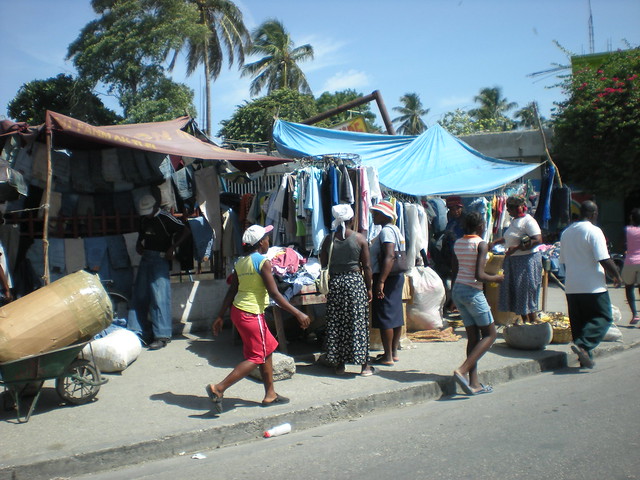
There are so many versions of Haiti right now.
Shattered Haiti still lingers. This week marks one year since the earthquake that reduced much of the Haitian capital Port-au-Prince to dust, and by all accounts rebuilding efforts have been disappointing at most. Generations without effective democratic governance deprived construction firms and workers any guidance or codes to which they could adhere for earthquake-proofing or just general solid construction. Meanwhile without effective property rights administration, as is common throughout the developing world, migrants from rural areas settled into shantytowns without any formally-recognized documentation of residency or ownership that might have entitled them to insurance or maybe public compensation for lost property.
Hopeful Haiti has captivated many imaginations. “Haiti is open for business,” Inter-American Development Bank Director for Haiti Projects Jose Agustin Aguerre told The Washington Post. Nicholas Kristof recently painted a portrait of Fonkoze’s work building ladders out of poverty in Haiti. Taryn Bird and Gerald McSwiggan at the Business Civic Leadership Center (a fellow U.S. Chamber of Commerce affiliate) wrote about what even today Haiti brings to the table for business:
An immense amount of human capital exists in Haiti – we’ve experienced it when we toured IDP (internally displaced persons) camps and spoke to residents and authorities about what they viewed as “up next” for their country. If this human capital fused with private-sector tools and investment, an untapped market potential and thousands of new jobs in Port-au-Prince could be unleashed, simultaneously offering SMEs and large businesses alike the opportunity to flourish. Click here to read the full post.
Troubled Haiti hasn’t quite died out yet. Despite assurances from United Nations observers and other international monitors that preparations for Haiti’s December 2010 elections were going smoothly, thousands of protesters took to the streets in riots alleging that the election had been rigged. The main airport out of Port-au-Prince was shut down for a few days due to the violence, stranding many development and relief workers while also disrupting plenty of commerce. Even after a few weeks of calming down, the situation remains tenuous as preparations are underway for a runoff election still to be scheduled at this moment.
Emergent Haiti is the one I have on my mind. There is no one person who can design and implement a plan to build a better Haiti. Only a shared effort can do that. From the planning stage and all the way through implementation, development is a messy and sometimes sluggish collective effort that, like all collective efforts, requires feedback and ingenuity from as many touch points as possible. So I’m wondering who is thinking about, talking about, and building a Haiti that works. I’m wondering if they write down their thoughts to share with others. I’m wondering where do they talk about it and who is listening to those conversations. I’m wondering if when they go out each day to build a better Haiti they can access the tools they need to coordinate their efforts.
Markets and firms are coordination tools. The media are another. Chambers of commerce and business associations, village discussion groups, and daily gatherings for fetching water or doing laundry can all be forums for forging a collective vision for what each community in any given country wants to become. They’re all touch points that can channel feedback and ingenuity into a shared vision for the country as a whole.
Fifty years from now Haiti might be able to look back and be proud of rebuilding its capital city and countryside to be earthquake-proof and environmentally sustainable. It might have a strong private sector that helped build it and will help maintain it through creating jobs, accumulating wealth, and contributing tax revenues to an effective government. It might have its own major multinational businesses bringing the unique gifts and talents of Haiti and the Haitian people to the world. Of course I could be wrong on all these counts. I’ve only encountered a little of what Haitians have in mind when they talk about the future of their country, but I am certain that they talk about it and I am wildly curious to find out if anyone is listening.
Published Date: January 14, 2011